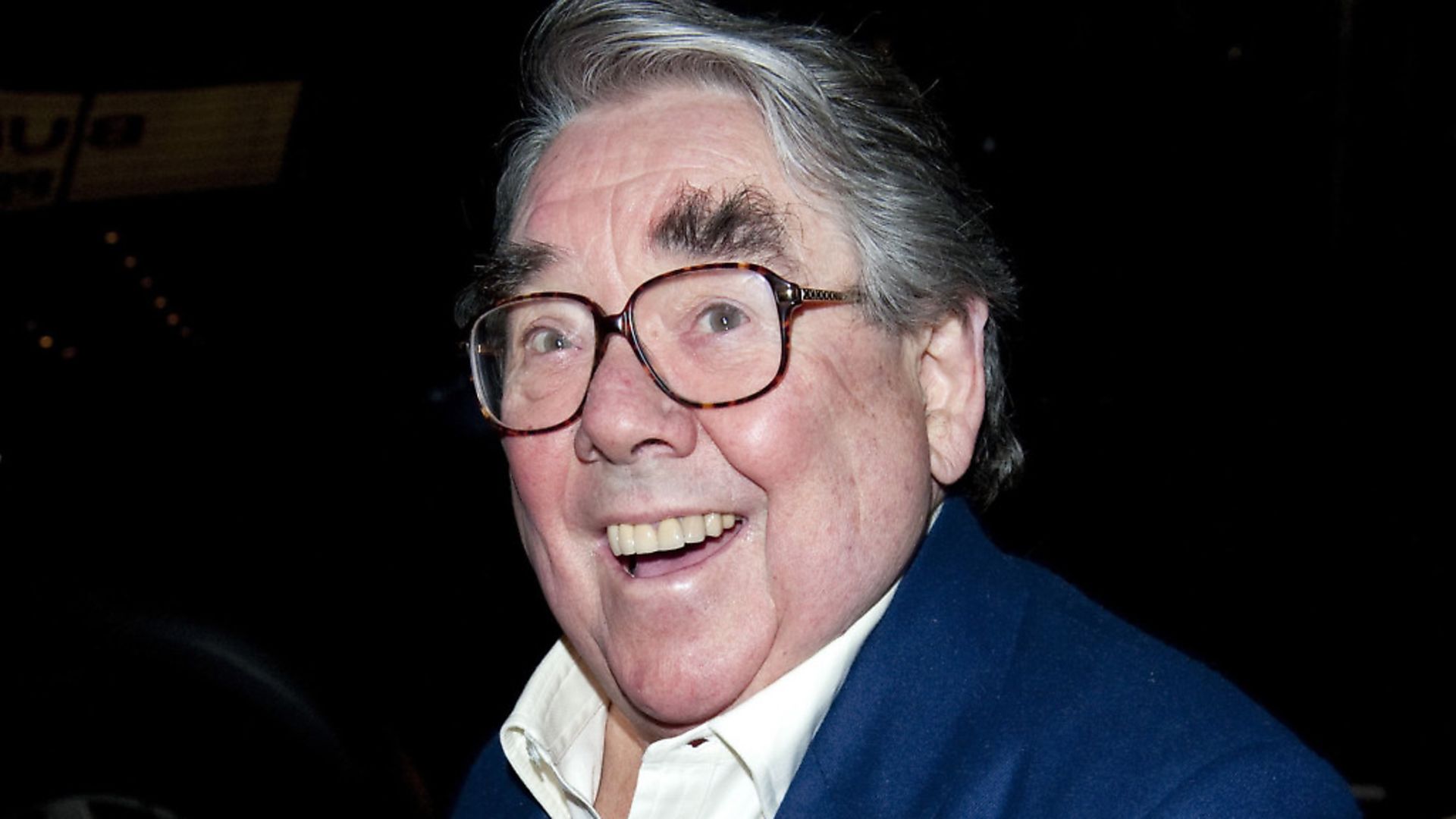
TIM WALKER writes of the esteemed actor and comedian Ronnie Corbett, a man full of life and enthusiasm.
This is going to take a bit of explaining, but it was The Winslow Boy that introduced me to Ronnie Corbett. The late, great actor and comedian never appeared in the play, but his old friend Edward Hardwicke had, at the Chichester Festival Theatre in 2001. It was a wonderful production, and, if there had been any justice in the world, it would have transferred to London.
Some 12 years on, Terence Rattigan’s play was revived at the Old Vic, with Henry Goodman playing the part of the father determined to fight for justice for his son. He wasn’t a patch on Hardwicke and I said as much when I reviewed it. A few days later, I received a beautifully handwritten letter from Corbett, in which he said how thrilled he was that Hardwicke’s portrayal had meant so much to me.
Corbett explained that Hardwicke, who had died two years earlier, had been his best friend ever since they did their national service together as pilot officers in the RAF. Hardwicke had given the role everything he had, not least because his father Sir Cedric Hardwicke had previously played it in the classic 1948 film version, so it was for him – as Corbett put it – a matter of ‘family pride.’
Corbett was then 83, but full of life and enthusiasm. Afterwards, if I wrote a piece he disagreed with, he was on the phone. He never wanted an argument: he just wanted to establish why I had thought something. He had a strong sense of the power of words and of right and wrong. Around that time I had agreed – as a stunt to raise money for charity – to appear as God in a production of Spamalot at the Playhouse theatre. I told Corbett it would almost certainly be embarrassingly bad, but invited him along.
To my delight, he showed up on a cold, dank winter’s night in a cheery tartan jacket and mauve waistcoat and was the life and soul of the party we had afterwards. Corbett was, of course, a living legend, best known for appearing in The Two Ronnies with his old friend Ronnie Barker, but also a string of films such as the first Casino Royale and No Sex Please, We’re British and the television sit com Sorry!. He’d also trodden the boards and done his share of pantos. He never, however, acted like a star: he was just interested in people, liked to laugh and wanted to make sure everyone had a good time.
Not long afterwards, Corbett attended a gathering at 10 Downing Street hosted by David Cameron, when he was still prime minister. Corbett confided in me he didn’t find him at all impressive – ‘too eager to please’ – but, born in Edinburgh and a staunch defender of the union, he was one of 200 public figures who subsequently put their names to an open letter expressing their hope that Scotland would vote to remain part of the United Kingdom in the independence referendum.
Presciently, Corbett sensed the storm clouds gathering over our country. It worried him young people in particular seemed oblivious to them. Corbett had an understated sense of patriotism that was based on the idea that everyone should have the same chances in life he’d had. Childhood memories of the war had left him with a sense, too, of the fragility of freedom.
Our conversations invariably ended with us both saying we must have lunch, but that was never to happen. Sometimes he would commit to a date, but later cancel, saying he was feeling ‘a wee bit under the weather’. Over the months, our telephone calls became less frequent, and, when I phoned, I found myself talking more often than not to his wife Anne. She was mystified why suddenly he seemed so tired. She was clearly worried sick about him, but she never once complained.
The Corbetts had sought medical advice and motor neurone disease had been diagnosed, a cruel and debilitating disease of the nervous system. Rumours began appearing in some tabloid newspapers about Corbett’s health, but the couple had decided they would handle the ramifications themselves and in their own way. I’ve no doubt at all that Corbett, who had devoted his entire life to making people laugh, had been loath to make them sad. He died in the spring of 2016: I associate the moment now with a loss of innocence and the start of a harsher – and certainly less humorous – era.









